Julie Larson, LCSW
on guilt and stress
Survivor guilt… it’s time to talk about this reality

We don’t talk enough about it … the guilt, the stress, the feelings that it’s just not fair …
Cancer flips you on head. The question of “why me?” can haunt any cancer patient. Everyone knows someone who had cancer and died, and those stories surface and circle around in your head. Everyone knows someone who had cancer and survived with fewer treatments and a faster recovery, and you wonder why this isn’t you. Everyone also knows somebody who fell into a dark hole of depression after a cancer diagnosis, and you wonder when this is going to happen to you. Cancer patients often find themselves comparing their medical condition and feelings to everyone else’s and trying to figure out what to do, what to think and how to act. The result can be overwhelming stress and guilt.
During The Breast of Everything podcast, Julie Larson, LCSW, a mental health therapist who specializes in oncology supportive care, talks with Comprehensive Breast Care Surgeon Linsey Gold, DO, FACOS, FACS, about dealing effectively with the stress and guilt that often accompany a cancer diagnosis.
Each cancer patient’s medical condition is different. Stop comparing yourself, Julie advises. And just as every condition is different, so is the emotional experience for each patient. Your emotions are yours and no one can tell you, “don’t feel that way.” Do not minimize or deny your feelings, she urges.
Cancer is life changing for every cancer victim, and every cancer victim is still at risk of a recurrence, and they live with that thought every day. Patients have a lot of emotional strength within themselves, and they should work toward rebuilding that strength and resilience. When they feel fragile, Julie urges patients to dig deep inside themselves and reclaim the inner strength that still is there. Find yourself again and try not to lose that focus.
She also reminds patients that it is okay to show your emotions, cry or scream. You want to survive. Find those survivor skills and use them. Cultivate a habit of noticing your world and really seeing it through your eyes, not someone else’s. How are you feeling? What are you thinking? Are you sad, angry, anxious, depressed, overwhelmed? Do you feel you’ve lost control of your life? It is important to acknowledge that you are suffering, and it is okay to wave the white flag.
Julie offers this additional advice for cancer patients who feel they’ve reached the emotional tipping point:
- Try hard to focus on when you feel stressed. Are there triggers? Start looking for the warning signs so you can be prepared for those emotionally difficult times.
- Share your worries, fears and questions with your family and close friends. Often talking with others relieves the stress and guilt, and you will be surprised how this will help those close to you know how they can better support you. Talking about cancer is complicated, and it is not a one-shot conversation.
- Don’t put on a happy face because you want to be brave and not worry others.
- Do not get into the “I should have” mind game. You’ll never win, and it only increases your stress and guilt.
- Allow yourself time to grieve.
- It is okay to seek professional help. Don’t go through this alone and don’t isolate yourself.
